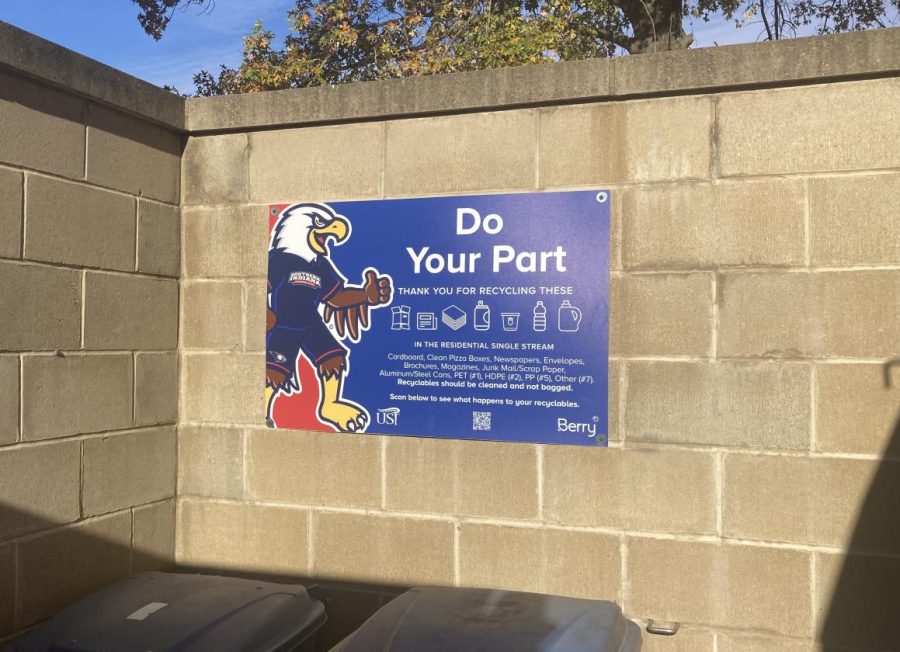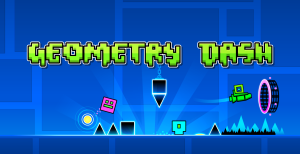How does USI’s recycling work? “Only as good as the people who use it”
Recycling bins are available near the dumpsters for USI’s on-campus apartments.
November 2, 2022
At the on-campus apartments, Maddy Nolan watches as waste management combines the recycling bins into the trash. Disheartened, she begins to question whether recycling actually works on campus.
This happened during her sophomore and junior years at USI, and the problem continues today.
Are recyclables on campus even being recycled?
Recycling is a very vague concept on campus. Few students or faculty know how USI’s recycling system works. More jarringly, many of them are not sure where the recycling bins’ contents actually go.
“There will be recycling bins, but you’re never sure if that stuff is actually recycled or if it’s all just thrown into one trash bin,” said Maddie Nolan, senior geology major and president of the geology and environmental science club.
“When I lived in the on-campus apartments, there would be recycling bins by the trash bins, and they’d maybe be there for two weeks, and they’d be gone for the rest of the semester. Then I’d still see waste management put these recycling bins into trash bins, and nothing was actually being separated,” Nolan said. “It’s not as confusing as is just realizing that nothing’s being recycled.”
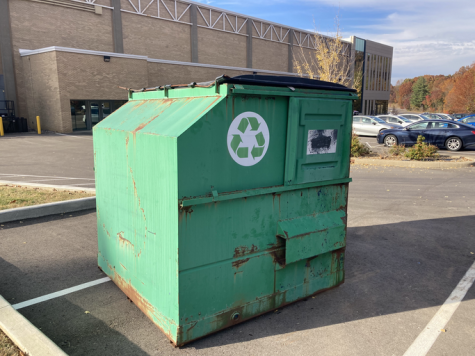
Chase DeBruyn is a senior environmental science major and SGA environmental committee chair. He feels the recycling process on campus is too vague. “I don’t know if it’s actually getting recycled. Because from what I’ve seen, the trucks that do come around seem to all just be one type. I’m not sure what they do.”
DeBruyn said he is unsure about how recycling and trash are collected and sorted on campus as well as in Evansville’s recycling programs. “I think all our students are worried,” DeBruyn said. “I talked about it with Maddie Nolan, and she was like, ‘I don’t know where it’s going.’ And I don’t know either because that information isn’t really given to us.”
The bigger problem of waste management
Recycling is only part of the problem. Students on campus produce a sizable amount of waste every day, and it’s only increasing. Not only is most of this waste not being recycled in general, but there are few efforts being made to reduce waste or reuse items on campus either.
“We produce a lot of waste, especially on a campus of this size,” Nolan said. “It’s not a huge campus, but we still create a substantial amount of waste. A lot of that is things that could be recycled, and they’re not recycled. It seems like a lot of people have that mindset of, ‘Oh, my small decision to throw this away instead of recycling isn’t going to make a big difference. But when everyone has that mindset, it creates a larger problem of nobody doing their part. So there is no recycling done on campus, essentially.”
DeBruyn noted that “Recycling isn’t the end-all-be-all because it’s ‘reduce, reuse and recycle.’ The recycling part is kind of not as important as reducing our usage of those types of materials. Because if we just keep recycling stuff, it perpetuates the system of producing those plastics. Recycling isn’t as important as reducing how much you use.”
Paul Doss, professor of geology, feels recyclability shouldn’t start with simply reducing waste. “Although recycling is important to me, I actually try not to recycle because I don’t want to even have something that needs to be recycled.”
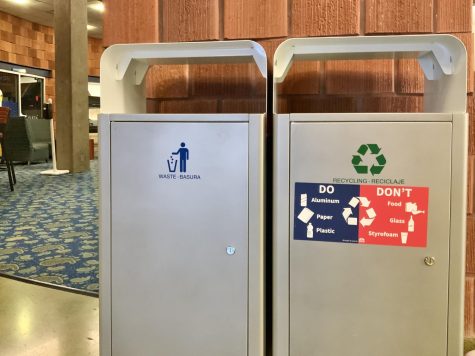
Doss has dedicated a large part of his career to educating people on the three R’s of waste, however, he feels the efforts have been unsuccessful as people continue to consume more materials, such as single-use plastics, that could be recycled, but aren’t.
Like DeBruyn and Nolan, Doss also does not know how recycling works on campus.
According to Doss, the ideal recycling system would be a truck picks up the recycling dumpster and takes it to a transfer station, where those materials are sorted into paper, cardboard, aluminum and plastics. Those materials are sold to a business entity where they’re turned into raw materials which will be reused to make new products. However, he is skeptical if the recycling process on campus actually works this way.
“I have no clue if that happens,” Doss said. “None whatsoever. I do know when I poke my head in this dumpster out here I see evidence of a lot of people just throwing their trash in.”
So, how does campus recycling actually work?
“Our custodial staff finds food waste or other trash in the recycle bins quite often,” said Miles Mann, director of facility operations and planning. “Then they must place the entire container in the waste stream.”
Mann said USI works as a “single-stream recycling program,” where all recyclables are collected in a single bin, loaded onto a single truck and taken to a facility to be sorted into commodity streams and sold to markets. Afterward, the recyclables are processed into raw materials that can be used to manufacture new products.
USI recycles paper, plastic, cardboard and aluminum. These items can be placed into any blue recycling containers as well as other labeled recycling bins across campus and on-campus housing. Depending on their location, the containers are collected either daily or weekly and deposited into eight-yard recycle dumpsters. The dumpsters are emptied two or three times a week.
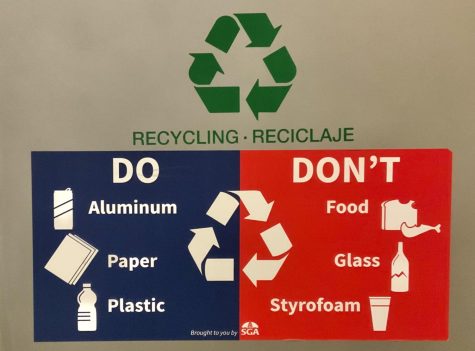
“The recycling program is only as good as the people that use it,” Mann said. “If someone throws trash or other unrecyclable materials into the bins or dumpsters, the entire batch is taken to the landfill instead of the recycling plant.”
USI’s recyclables are collected by Republic Services and are hauled to Tri-State Resource and Recovery. Mann said it costs the university a significant amount of money to recycle, just as much as it costs to haul trash. The only money USI makes from recycled materials is from batteries and scrap metal, which is recycled through a local “scrap yard” called Fligeltaub Recycling. The profit from recycling batteries and scrap metal goes directly toward paying for recycling efforts at USI.
“From my experience, the students have been champions towards the recycling efforts on campus and in Housing,” Mann said.
How students can recycle and become better consumers
Doss said ignorance and the overall growing waste problem is a large contributor to the cluelessness surrounding our recycling system.
“Ignorance is not a negative word. It means unaware,” Doss said. “On this campus, I know how it should work, and I cross my fingers hoping that that’s how it does work. But I doubt it. Simply because when I look in there, I see garbage, and I know for a fact that the transfer station doesn’t have the ability to deal with that. So if they get a load of recycling littered with garbage, they just have to take it to the landfill.”
“I would argue that we are in crisis mode, but I’m thinking a lot of people don’t really see that,” he said.
According to the Environmental Protection Agency, 292.4 million tons of municipal solid waste was generated in the United States in 2018, and 146.1 million tons were landfilled. Of the 146.1 million tons landfilled, 24.14 percent was food waste, 18.46 percent was plastic and 11.78 percent was paper and paperboard waste.
Doss said the waste situation may never improve, as he does not believe people will make mindful changes in their lifestyle to help reduce the amount of waste from consumption. He promotes buying items in bulk and being mindful of buying items with less packaging to help reduce the amount of waste produced.
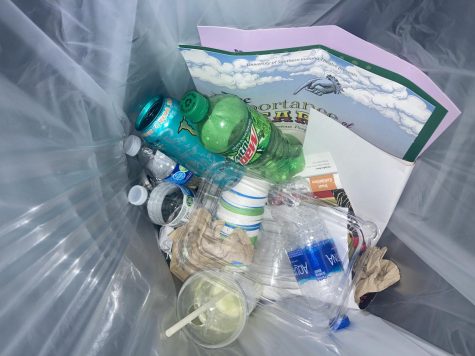
“Stop consuming so much stuff,” Doss said. “I’m not saying I’m doing it right, but I’m saying there are solutions. Every time you buy something that has packaging that you have to throw away, think twice about it. I mean, we can’t avoid it. We make waste and that’s a given. It is very possible though to reduce the amount of waste that’s produced. So think about that every single time you purchase something.”
DeBruyn agreed that reducing waste is important, but reusing is a crucial step as well.
“A good example would be glass containers for sauces or stuff that you get from the store,” he said. “You can wash it out and continue to use it for other things, and you don’t have to throw it away. You can use it for your own food storage and stuff like that. It’s also just making sure that you are purchasing products that can be recycled and knowing how recycling works in general because a lot of people just think, ‘Oh, I put it in the bin and then it goes to the plant.’ But, oftentimes, that’s not the case.”
“I think as long as we have places like Starbucks and Chick-fil-A on campus, it’s just so much waste, and we’re never going to really be super green,” Nolan said. “We produce so much waste every day just from our food options, not counting the amount of paper that we go through here.”
Although recycling is not the ultimate solution to waste management on campus or in the world, students can still take steps now to reduce the amount the materials they use, reuse materials after initial use and recycle materials properly.
It’s also important to note that recyclables must be clean and not all types of plastic can be recycled. USI accepts PET (#1), HDPE (#2), PP (#5) and other (#7). Before you recycle any plastic container, check the triangle on the bottom of the product to see what type of plastic it is.
Remember to not mix trash in with the recycling — it ruins the recyclability of everything else in the bin.
Doss warns about what will happen if we are too late to take action. “It’ll be crisis management,” he said. “Things will collapse, things will become crises and then maybe we’ll start acting. One thing’s for sure: I’m old. I’ll be dead. You won’t be. My children won’t be.”
“I hope people can start to care about it a little more and do their part,” Nolan said.


